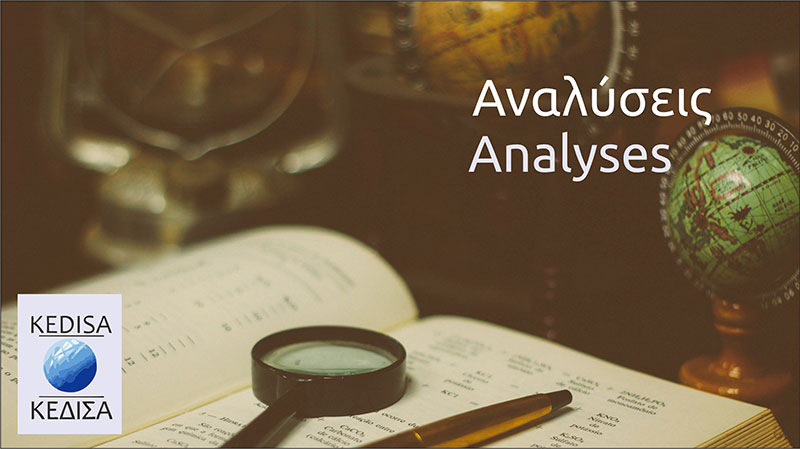By Konstantinos Anagnostakis, Junior Analyst KEDISA
Few days have passed since the earthquake of February 6th that shook central and south parts of Turkey, resulting in numerous casualties and a rising death toll number. International aid answered the Turkish calls quickly, with Greece being the first country to respond. Despite the historical rivalry and the conflicting national interests between the two countries, the humanitarian cause became a priority in the Greek political agenda. This situation brings us memories from the earthquakes that struck both Turkey and Greece in 1999. At that time, both countries responded to each other’s calamity, setting the stage for a bilateral rapprochement, a phenomenon later called as “earthquake diplomacy”.
In general, the earthquake diplomacy can be perceived as a field of the Disaster Diplomacy. It mainly studies how disasters affect politics and how disaster-related activities influence political decisions and trigger political actions. As Kelman puts it, disaster diplomacy is focusing on “how and why disaster-related activities do and do not yield diplomatic gains looking mainly at disaster-related activities affecting diplomacy rather than the reverse.” In other words, a humanitarian disaster can provide a new impetus for rapprochement between rival states, opening new windows of collaboration. This does not necessarily mean that it is enough to fill the gap between two countries, but it can provide a fertile ground in which new talks can be initiated. If the proper mechanisms are developed, an earthquake, for example, can act as a catalyst for social change, influencing state and non-state actors to take action and approach the societies in a more human-centric way rather than a state-centric one.
The earthquakes of 1999 in Turkey and Greece are a typical example of what can earthquake diplomacy achieve. In August 1999, Turkey was hit by an earthquake disaster resulting in about 18.000 dead people. Greece immediately assisted Turkey and the aid became mutual when Turkey helped Greece recover from the 6.0-magnitude earthquake that struck its capital, Athens a month later. This “tit-for-tat” humanitarian interventions triggered social actions involving not only state actors but also NGOs, the public and the media. Fund-raising, collecting food and clothes, volunteering etc were some of the initiatives that did generate mutual understanding and goodwill between the two neighbours. Especially if we take into account the Imia incident that occurred three years earlier in 1996 and had severely damaged the Greek-Turkish relations, the 1999 earthquakes were the milestone for rapprochement, opening new avenues of reconciliation talks.
Similarly, the recent earthquake was quickly and widely covered by the Greek media, raising public awareness and support for the people affected. The civil society and non-state actors were mobilised collecting aid for the displaced. On a political level, Greek foreign minister Nikos Dendias visited the earthquake-stricken areas of Turkey, accompanied by his Turkish counterpart, Mevlut Cavusoglu. Greek President Katerina Sakellaropoulou and Greek Prime Minister Kyriakos Mitsotakis also called Turkish President Erdogan to express their support, despite their relations have been in historically low till then. However, we should not forget that in both countries, election campaigns are underway; both Greek and Turkish politicians use slogans with a nationalist background and so far this seems unlikely to change. Turkish elections are also at stake; the government will probably grab the chance to postpone the elections, avoiding the danger of being criticised under this momentum.
Briefly, a natural calamity (such as an earthquake) can have a positive impact providing a framework for new thinking in foreign policy, boosting diplomatic efforts and warming the bilateral relations between two traditionally rival states. Of course, this is highly unlikely to generate a rapprochement from the scratch, but with the proper political and social mechanisms developed, it is possible to influence bilateral relations in the short term. The national interests and the geopolitical landscape remain the same, but this could be a momentum for the two societies to be brought closer, as happened 24 years ago. It’s hard to predict, though, whether the earthquake diplomacy will be enough to reconcile the hostile neighbours this time.
References:
Kelman, I., 2006. Acting on disaster diplomacy. Journal of International Affairs 59 (2), 215–240.
Sources:
https://mondediplo.com/2000/06/06greece
https://www.disasterdiplomacy.org/pb/mavrogenisetal.2013.pdf
https://www.jstor.org/stable/43615506


